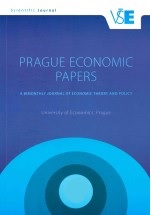Bitcoin transaction fees, miners’ revenue, concentration and electricity consumption: a failing ecosystem
Bitcoin transaction fees, miners’ revenue, concentration and electricity consumption: a failing ecosystem
.
Author(s): Frederik Rech, Chen Yan, Amon Bagonza, Ľubomír Pinter, Hussam MusaSubject(s): Economy, Financial Markets
Published by: Vysoká škola ekonomická v Praze
Keywords: Bitcoin; transaction fees; miners’ revenue; miner concentration; Electricity consumption
Summary/Abstract: The research and investment community seems to ignore the long-term sustainability of Bitcoin, which is reflected in four flaws: transaction fees, miners’ revenue, concentration and electricity consumption. While most of the authors have aimed to examine one topic at a time, with a particular interest in electricity consumption and carbon footprint, the aim of this paper is to examine all these issues simultaneously to provide a more comprehensive view on long-term sustainability of Bitcoin. This paper looks at these flaws and reveals why Bitcoin is not sustainable in the long run, how decentralization is being lost, how the design is putting artificial and unrealistic pressure on the ecosystem, while all being powered by an unjustifiable amount of dirty electricity sources. Our main findings are as follows. Firstly, transaction fees are already high and set to increase in time, further discriminating small transactions against big ones. Secondly, miners’ revenue comes mostly from the block reward. The block reward is the main income source for miners, but is set to be cut on a regular basis, making miners’ revenue not sustainable in the long run. Thirdly, miner concentration is already an issue, with a possibility of deepening even more and diminishing the idea of decentralization. Fourthly, the high electricity demand and the associated carbon footprint thus cannot be justified by any means. We deem our results useful for overall policy and regulatory implications.
Journal: Prague Economic Papers
- Issue Year: 31/2022
- Issue No: 5
- Page Range: 377-397
- Page Count: 21
- Language: English

